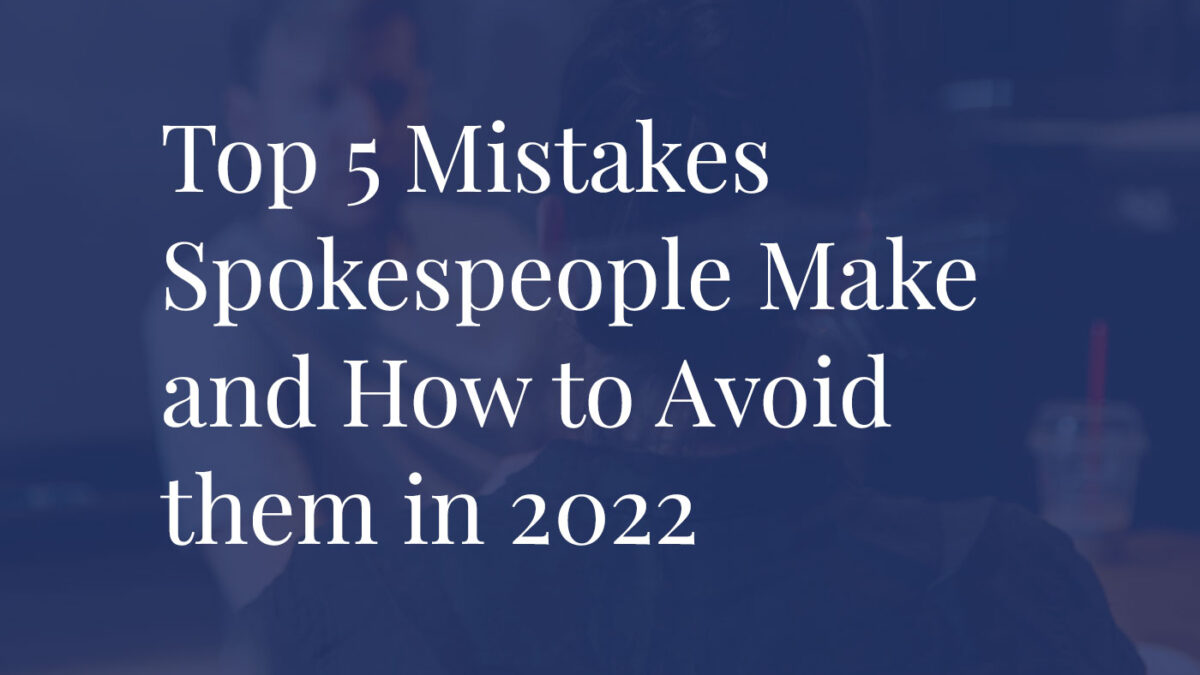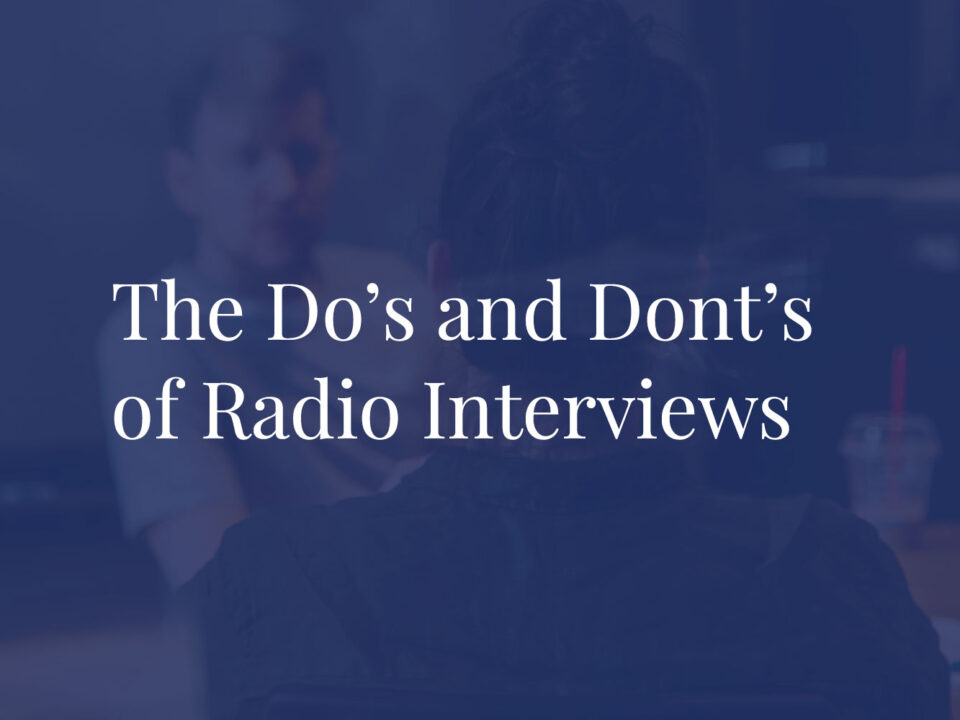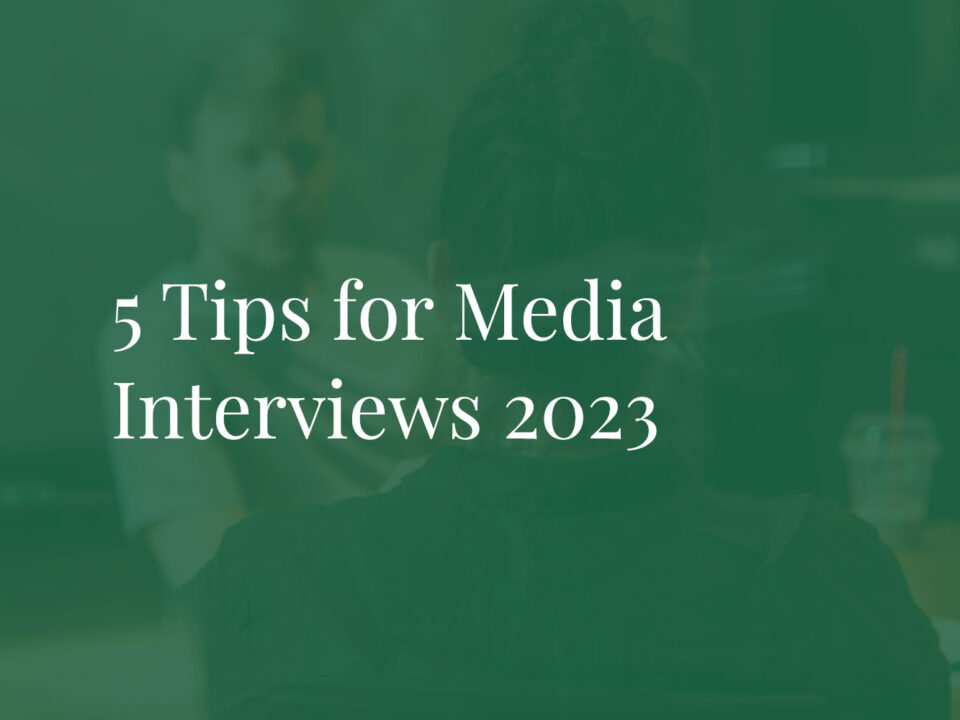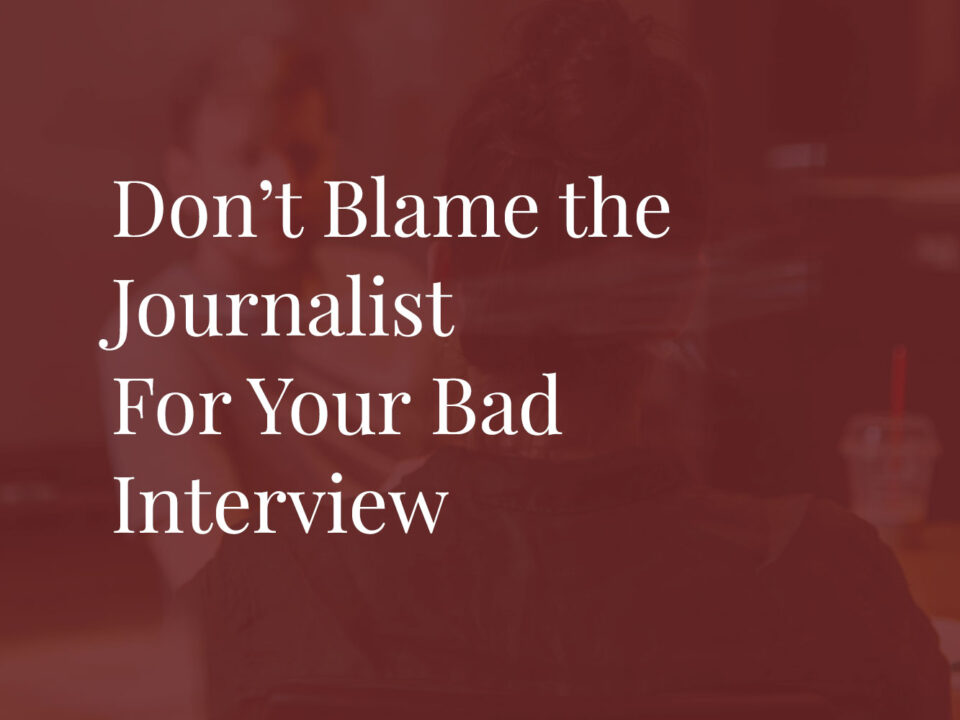The Top 5 Mistakes Spokespeople Make and How to Avoid them in 2022

The objective of any media interview is for you a company spokesperson, individual and brand to be portrayed in the best possible light. However, there are some really common mistakes that spokespeople continue to make and once the damage is done, you can’t erase it.
Mistake #1 – Not Preparing
You wouldn’t walk into a meeting without being prepared so why do this for a media interview? Without taking the time to research the media outlet and prepare you are allowing yourself to walk into the firing line without any protection. What ultimately happens is you will find yourself scrambling at the first difficult question. It will throw you off your game and spiral out of control with your confidence waning as the interview progresses and your reputation in tatters. Remedy: Putting time into understanding the media outlet, their audience, their angle, and your objectives will ensure the best possible outcome.
Mistake #2 – Not Understanding Your Audience
This is a common mistake on two fronts. Firstly, agreeing to do an interview with an outlet that doesn’t reach your audience and secondly, not speaking in a way your audience can relate. I have seen so many interviews that have completely lost the audience because the spokesperson has used jargon or answered a question loaded with facts and figures that make people’s eyes glaze over, completely losing your audience (example – NSW Treasurer at the time, John Hewson, the cake, and the GST interview – google it if you are too young to remember this one!). Remedy: If the media outlet does not reach your audience, find one that does. If your messages are figure heavy then find a way you can express this so the audience can relate for example, ‘you can get this for the price of a weekly cup of coffee’.
Mistake #3 – Not Developing Your Messages
If you don’t take the time to prepare the key messages you want to get across in the interview, then don’t bother doing the interview. What is the point of answering a raft of media questions if you don’t get your own messages across? The journalist may get what they want but you have completely wasted your time. Remedy: Work on 1-3 key messages, rehearse and find a way to weave them into your answers. Most politicians are masters at getting their message across regardless of the question – you can too.
Mistake #4 – Thinking – I won’t get asked that question
This happened to a client of mine. I asked him to work on addressing a negative issue that was in the limelight years many years ago but had been resolved. What goes on the net stays on the net so anyone googling this issue would have seen the negative article. My client said, “Don’t worry, they won’t ask about that, it happened ages ago”. With a live interview on a Sydney television morning program I just couldn’t let him take the chance. So, I convinced him that it wouldn’t hurt to rehearse an answer just in case. The interview went smoothly but they did ask that question and my client handled it well, maintaining his credibility and putting the audience at ease. Had he not prepared, he would have lost all credibility. Remedy: Developing a ‘worst-case-scenario’ line of questioning and devising ideal responses, is another good way to ensure you don’t become a deer in headlights and you maintain your reputation and credibility.
Mistake #5 – Winging it
You wouldn’t be able to do your job without some education or training. The same goes for an interview. Even the charismatic CEO who is a ‘natural’ in front of audiences can find themselves fumbling through an interview at the first tricky question or using body language contrary to what they are saying. A poor performance in an interview can do irreparable damage to an individual’s or company’s reputation. You can’t risk it unless you are prepared to lose it. Remedy: Get a professional media trainer to take you through the hard questions, getting your messages right and advising you on technique such as body language and voice projection. It will be the best investment you make in yourself and your organisation.
Positive exposure through the media is, because of the in-built credibility of the media itself, of much more benefit than paid advertising and costs virtually nothing except time. Invest wisely.



